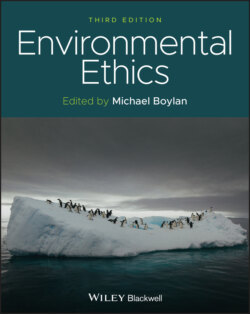Читать книгу Environmental Ethics - Группа авторов - Страница 41
Freedom to Breed is Intolerable
ОглавлениеThe tragedy of the commons is involved in population problems in another way. In a world governed solely by the principle of “dog eat dog”—if indeed there ever was such a world—how many children a family had would not be a matter of public concern. Parents who bred too exuberantly would leave fewer descendants, not more, because they would be unable to care adequately for their children. David Lack and others have found that such a negative feedback demonstrably controls the fecundity of birds (11). But men are not birds, and have not acted like them for millenniums, at least.
If each human family were dependent only on its own resources; if the children of improvident parents starved to death; if, thus, overbreeding brought its own “punishment” to the germ line—then there would be no public interest in controlling the breeding of families. But our society is deeply committed to the welfare state (12), and hence is confronted with another aspect of the tragedy of the commons.
In a welfare state, how shall we deal with the family, the religion, the race, or the class (or indeed any distinguishable and cohesive group) that adopts overbreeding as a policy to secure its own aggrandizement (13)? To couple the concept of freedom to breed with the belief that everyone born has an equal right to the commons is to lock the world into a tragic course of action.
Unfortunately this is just the course of action that is being pursued by the United Nations. In late 1967, some 30 nations agreed to the following (14): The Universal Declaration of Human Rights describes the family as the natural and fundamental unit of society. It follows that any choice and decision with regard to the size of the family must irrevocably rest with the family itself, and cannot be made by anyone else.
It is painful to have to deny categorically the validity of this right; denying it, one feels as uncomfortable as a resident of Salem, Massachusetts, who denied the reality of witches in the seventeenth century. At the present time, in liberal quarters, something like a taboo acts to inhibit criticism of the United Nations. There is a feeling that the United Nations is “our last and best hope,” that we shouldn’t find fault with it; we shouldn’t play into the hands of the archconservatives. However, let us not forget what Robert Louis Stevenson said: “The truth that is suppressed by friends is the readiest weapon of the enemy.” If we love the truth we must openly deny the validity of the Universal Declaration of Human Rights, even though it is promoted by the United Nations. We should also join with Kingsley Davis (15) in attempting to get Planned Parenthood-World Population to see the error of its ways in embracing the same tragic ideal.
